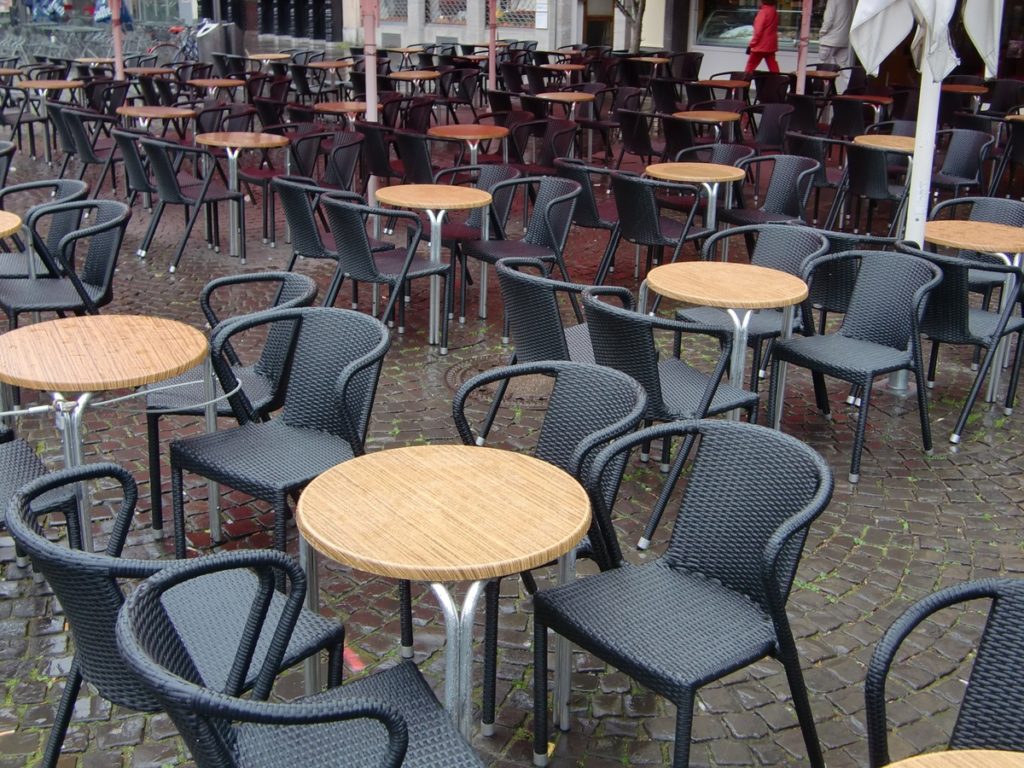Belgium’s cafés, closed since March 14 as the first phase of the lockdown, could be allowed to open up again on June 8 or even earlier, according to federal home affairs minister Pieter De Crem.
Speaking on RTL television on Sunday, De Crem explained that the next meeting of the council of national security is scheduled for June 3, with whatever measures are decided then coming into effect on June 8. The council could, however, decide to advance that date by a few days, he said.
The possibility is a hypothetical one, he stressed and depends entirely on events and on the view of the experts who also sit on the council.
Related News
- After weeks of darkness, horeca sector climbs tentatively toward the light
- Grand Place Grows Grass: Photos of Lockdown
“We must not put the cart before the horse,” he said. “We are still in a period of suffering through a crisis.”
The absolutely unavoidable condition for any reopening of restaurants and cafes is that the epidemic continues to decrease. And since hygiene and distancing measures still have to be observed, he suggested cafés could start by opening their terraces.
“We cannot rule out that they may reopen first,” he said. “That could be before June 8, but I cannot confirm that today.”
The hint at a date for reopening comes as Horeca Vlaanderen, the sector federation for Flanders, issued a demand for the government to give them some concrete information on the reopening, rather than leave the matter hanging for another ten days.
“The industry needs time to prepare for a reopening, which is why communication has to start sooner,” the federation said.
“In recent weeks we have been discussing a guide for the industry, which lays out the safe conditions for opening,” said Matthias De Caluwe, CEO of Horeca Vlaanderen. “That consultation is in its final phase, but from an operational point of view it is absolutely essential to make a decision on which conditions will be applied.”
Preparations are likely to be complex, ranging from placing orders at a time when the entire industry is doing the same, to cleaning installations and premises, to rearranging café interiors to allow for proper distancing.
Outside tables are a possible stop-gap solution, but not all premises have space for more than a few tables. In that and other ways, the federation fears that a good number of bars and restaurants will be unable to adapt to the new rules, and will decide not to reopen – if they have not done so already.
Cafés in the Netherlands have already been informed they may reopen on June 1, under similar conditions, with the addition of a limit of 30 customers at any one time.
“We think that such a limit on capacity would be difficult for our sector,” De Caluwe said. And businesses which are unable to operate under such a condition should, he said, be allowed to continue receiving the premium offered to businesses forced to close down at the start of the lockdown.
Alan Hope
The Brussels Times

